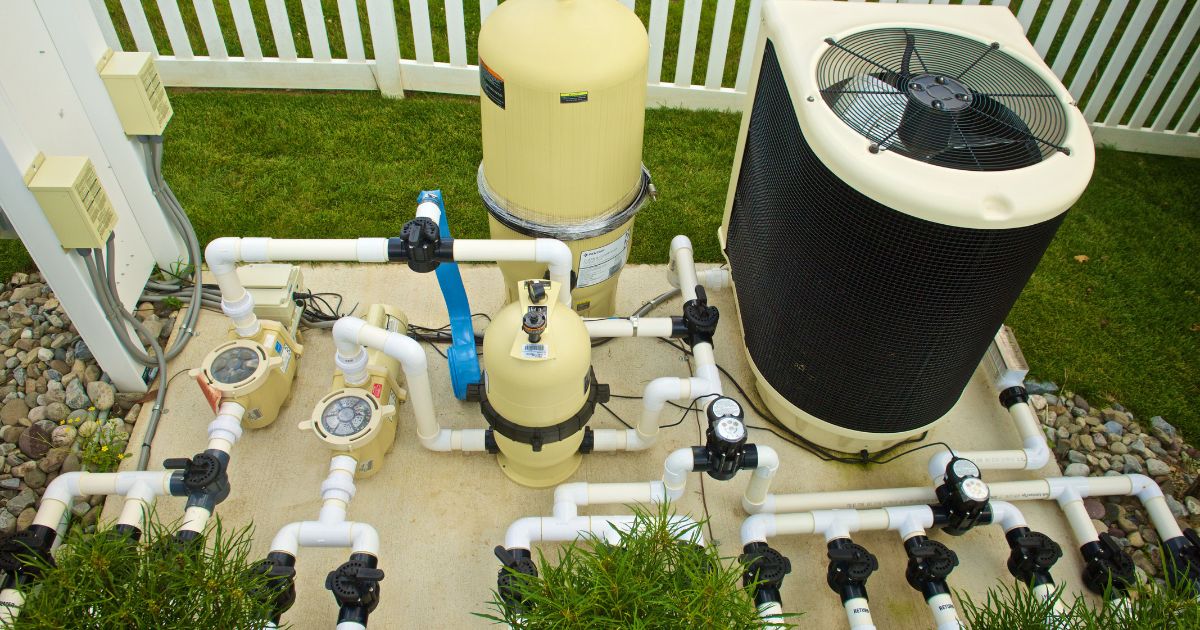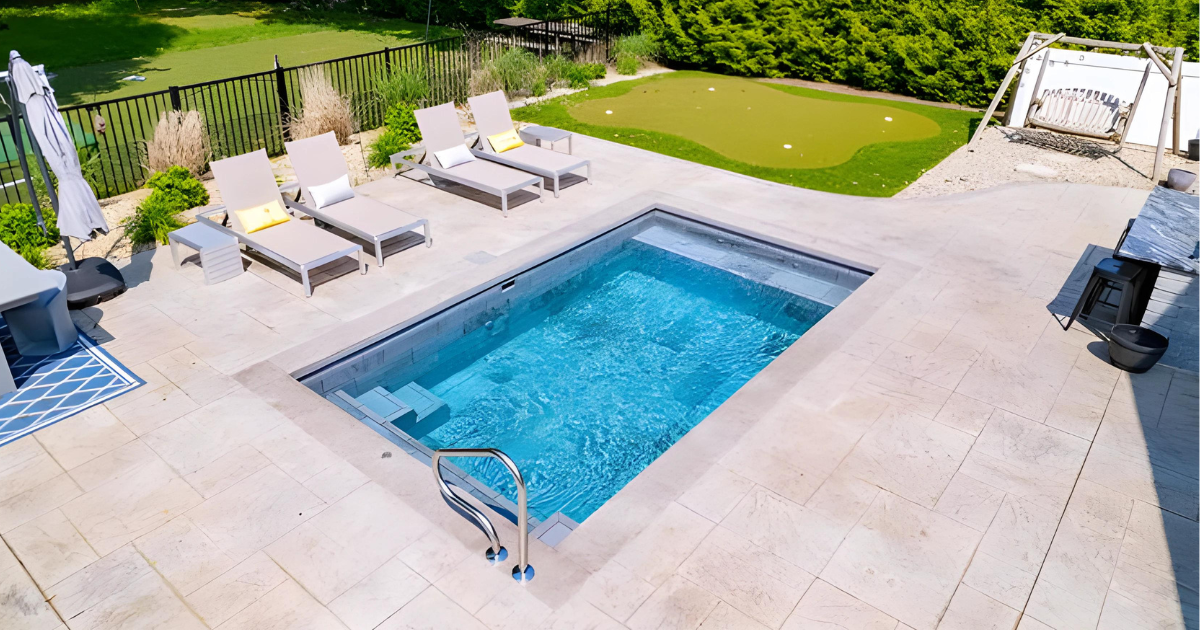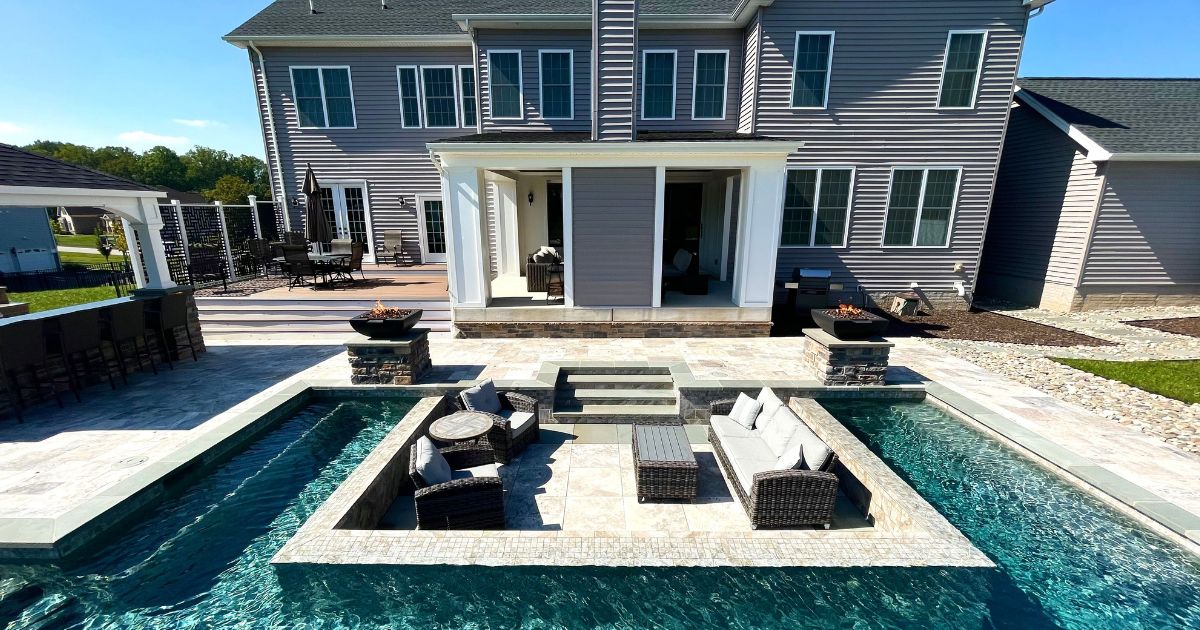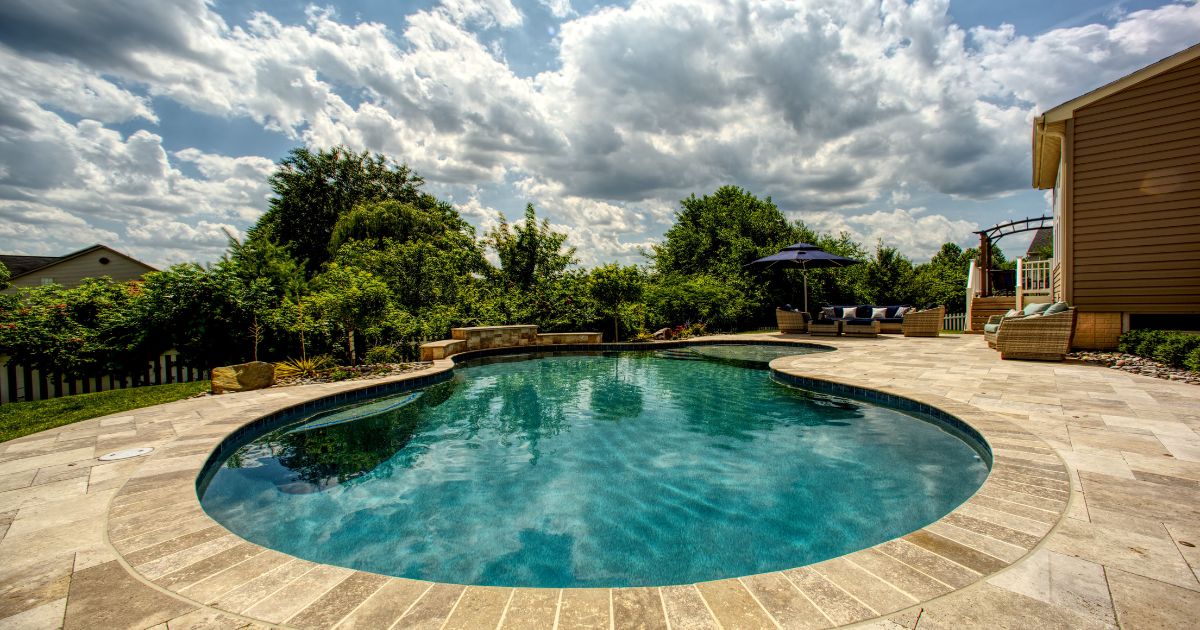Wondering how you can get the benefits of living waterside in a small backyard? Then…

Extend Pool Season with a Pool Heater
While Labor Day weekend marks the end of pool season at most public and private pools, it doesn’t have to mean the end of pool season at your house, especially with pool heaters. Daytime temperatures are still plenty warm, even if the evenings are getting cooler. And of course, evenings are when you want to relax in the pool.
Whether you installed your inground pool or it was there when you moved in, if it doesn’t have a pool heater, you’re missing out. A heated pool means you can enjoy the pool later in the fall and earlier in the spring. But as with any purchase, it pays to do your research and learn about your options. They include:
- Gas Pool Heater
- Electric Pool Heat Pump
- Hybrid Heating
Whichever method you choose to heat your pool, pay for quality products, such as Pentair offers. Let’s take a look at some of the specifics:
Gas Pool Heaters
A gas pool heater uses either natural gas or propane to heat your pool. Some pros and cons to note:
Pros
- Gas heaters heat the pool water quickly.
- They’re quiet.
- OK to operate in low temperatures.
Cons
- May cost more to operate than a pool heat pump.
- Can use a lot of gas.
- Not as energy-efficient as a pool heat pump.
Electric Pool Heat Pumps
An electric pool heat pump is a more recent entry into the heated pool market. You can learn more about how they work from this Department of Energy article. Pros and cons include:
Pros
- More energy-efficient than a gas pool heater.
- It will last longer than a gas heater.
- A pool heat pump costs more upfront, but the increased efficiency and longevity save more money in the long run.
Cons
- It takes longer to heat the pool than a gas pool heater.
- It may not be as quiet as a gas heater.
- Not suitable for operation in temperatures lower than 40 degrees.
Hybrid Heating
This hybrid pool heating technology is the newest option for heating your inground pool. It combines the best of the two previous options. Let’s look at some of the specifics,
Pros
- It heats your pool faster than a heat pump.
- It’s more efficient than a gas heater.
- It has a long service life and is very dependable.
Cons
- It costs more upfront.
- It takes up more space than a gas heater.
- It requires both electric and gas lines to operate.
Which Option Is Right for You?
If a heated pool is important to you, any of these options will get you what you want. If you plan to live in your home for years to come, your investment in one of the higher-cost options will pay for itself. On the other hand, if you’re not sure where you’ll be 3-5 years from now, the lower cost of a gas pool heater might be appealing.
Whatever you decide, consult with a pool professional to ensure you buy a pool heating option that is properly sized for your pool, and to handle the installation safely.
Related Reading: Is a Pool Heater Worth It?
Make It Exceptional. Make It Woodfield.
We install pool heaters and heat pumps with new inground pool installation, as well as during pool repair and renovations. If your inground pool needs some upgrades, this is the perfect time of year to do it, so that it will be in top shape next spring.
We work with discerning homeowners throughout the Baltimore area, including Anne Arundel County, Baltimore City, Baltimore County, Carroll County, Cecil County, Harford County, and Howard County. Schedule a call today.



